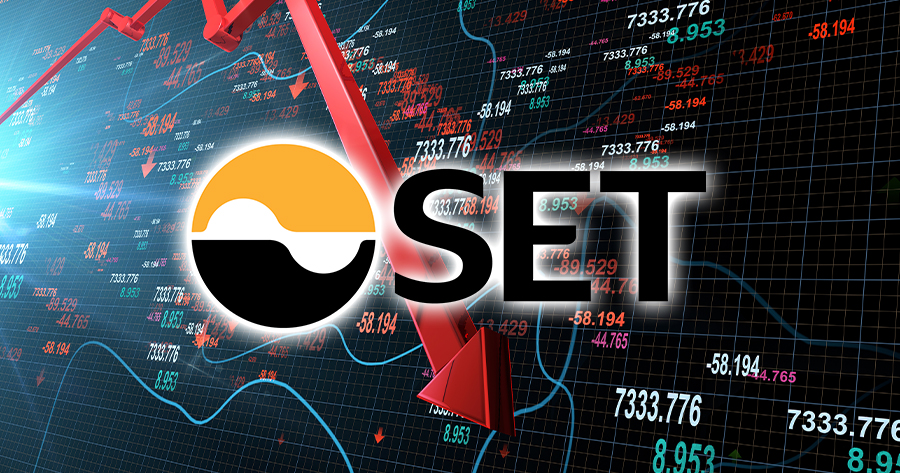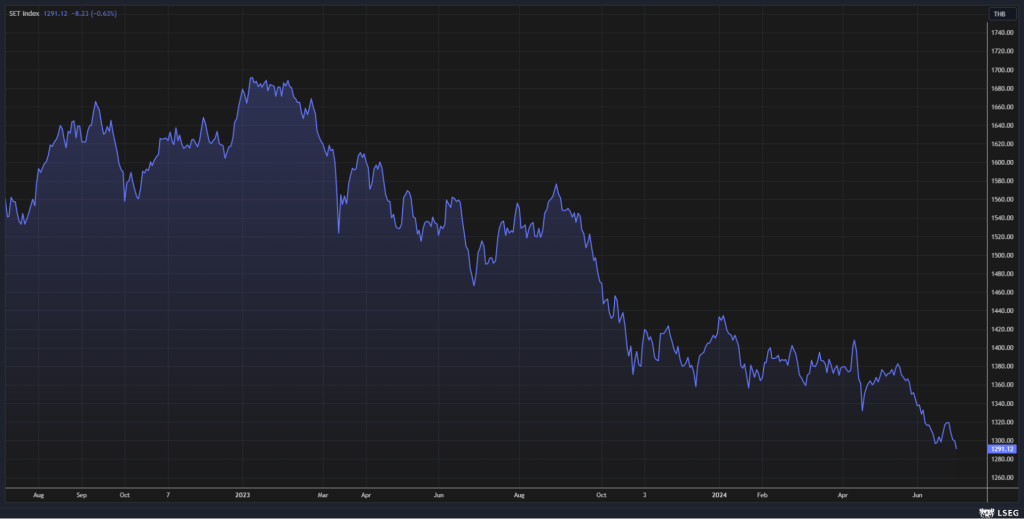The uptick rule, seen as a measure to reduce volatility in the Thai stock market, failed to lift market performance as the SET Index experienced slight declines on Monday and significant drops in Tuesday’s morning session.
Thai regulators introduced new regulations to enhance transparency by identifying program trading users and to curb inappropriate orders.
The uptick rule serves as a mechanism to deter sellers from exacerbating the downward momentum of a securities price that is already experiencing a significant decline. When initiating a short-sale order at a price exceeding the current bid, a short seller guarantees that the order is executed on an uptick.
Implemented on July 1, 2024, the new regulation led to a notable decrease in short selling as the total value dropped from 4,000-4,500 million baht before the rule took effect to around 1,200 million baht on the first day.
Despite these changes, the market did not experience positive effects, with the SET Index closing lower on the debut of the uptick rule and plummeting by about 1% the following day, reaching a new low since November 2020.
This suggests that while the uptick rule could be beneficial in normal circumstances, its impact was limited as the Thai stock market faced challenges such as political uncertainties and delays in government stimulus measures. Consequently, investors displayed less enthusiasm in trading Thai stocks.
Finansia Syrus Securities (FSS) highlighted that the drop in the SET index below 1,300 points contributed to a pessimistic market sentiment. Concurrently, Asian markets exhibited muted activity with decreased trading volumes, predominantly moving in a downward direction.
The prevailing political uncertainties in Thailand exerted ongoing pressure on the market, potentially leading to further drag. This environment of uncertainty eroded investor confidence, resulting in a cautious approach towards investments and a heightened inclination to sell off stocks as a risk-mitigation strategy.






